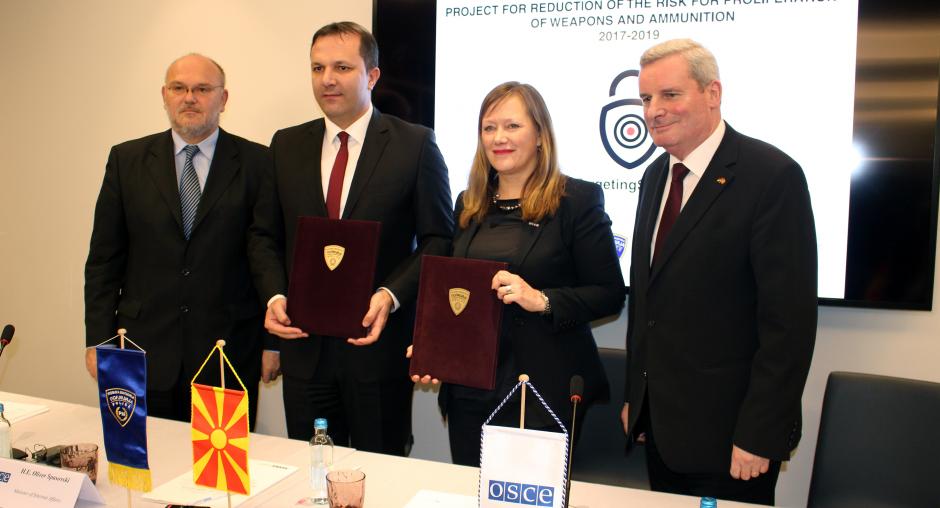OSCE Mission to Skopje and Interior Ministry launch project to reduce risk of weapons and proliferation of ammunition

SKOPJE, 30 November 2017 – The OSCE Mission to Skopje and the Ministry of Internal Affairs launched in Skopje today a new project aimed at reducing the risk of proliferation of weapons and of ammunition and to increase the security of existing stockpiles of small arms and light weapons.
“OSCE participating States recognize the importance of combating the illicit trafficking of small arms and light weapons,” said the Head of OSCE Mission to Skopje Nina Suomalainen. “The Mission will build on its previous work with the Ministry of Internal Affairs to work towards reducing the illicit trafficking of small arms and light weapons, as well as to fight organized crime and transnational threats that pose a security risk to the country and the wider region.”
The Memorandum of Understanding was signed between the Mission and the Ministry of Internal Affairs for the implementation of the project.
Minister of Internal Affairs Oliver Spasovski said: “The signing of this Memorandum of Understanding is a result of the joint efforts and an expression of a unified understanding of the importance of the full and timely implementation of the responsibilities undertaken by the OSCE participating States in the area of small arms and light weapons, and related to the stockpiles of conventional ammunition found in their national territory.”
The project is financially supported by the European Union and the German Federal Foreign Office.
“The most important result we expect from the project is to reduce transnational threats and fight successfully against organized criminal activity by preventing illegal entry to the armories, and thus preventing the proliferation of weapons,” said Ambassador of Germany Thomas Gerberich.
Tibor Varadi of the EU Delegation Skopje said that the large-scale presence of firearms in South-Eastern Europe and the lack of sufficient capacities to fully secure small arms and light weapons and ammunition are a particular concern for the EU and its Member States.
“In recent years, the domestic threat posed by firearms trafficked into the EU increased and has gained also critical importance on the policy agenda. Member States and EU institutions recognize that we need to work with partners, especially in the Western Balkans to jointly tackle the illicit flows and proliferation of firearms,” he said.
